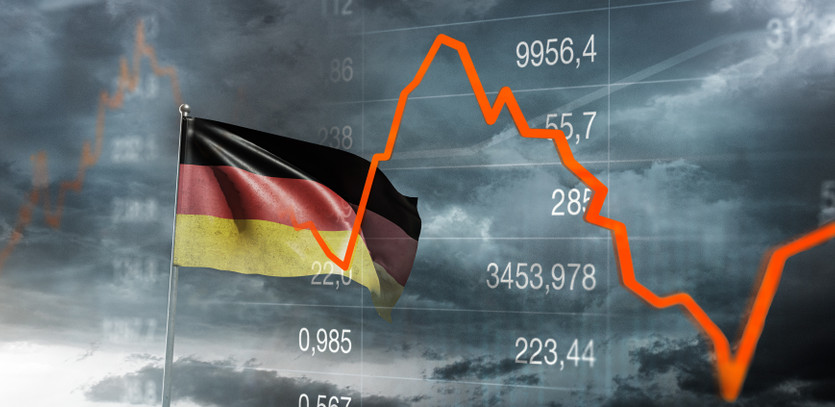The Powerhouse of Europe: Germany
As Europe's premier economy and the world's fourth most prominent, Germany boasts a formidable industrial production capacity. It stands third globally in exports, only surpassed by China and the U.S, while vying with China for the top spot in trade surplus. Germany's prominence is further highlighted by its housing of numerous global 500 publicly traded companies, making it a significant player for international investors.
If you've ever contemplated investing in Germany, here's a comprehensive look at the merits and potential drawbacks of Germany's Exchange-Traded Funds (ETFs) and American Depositary Receipts (ADRs) - two renowned investment vehicles.
A Glimpse into Germany's Economy
DAX 30 Index
The cornerstone of Germany's economic prowess can be found within the DAX 30 Index, akin to the United States' Dow Jones Industrial Average. This index comprises the 30 most significant German companies, based on their market capitalization on the Frankfurt Stock Exchange. Notable brands within this index include Adidas AG, BASF SE, BMW AG, Bayer SE, and Siemens Energy AG, amongst others.
Natural Resources and Renewables
Germany is rich in natural resources such as uranium, timber, potash, nickel, copper, and natural gas. Additionally, the country has a stronghold in the renewable energy sector, being one of the global leaders in wind turbine production. In a significant milestone, renewables surpassed coal as Germany's primary energy source in 2019. By 2030, Germany aims to produce 65% of its energy from renewable sources.
Exports contribute to over half of the sales in Germany's key sectors, including:
- Automotive manufacturing
- Medical technology
- Chemical industry
Why Invest in Germany?
Investing in Germany offers several advantages, stemming from its economic stability and prowess. Some benefits include:
- Robust economy: With a GDP of $3.85 trillion in 2020, Germany's economy is one of the world's strongest, both in size and exports.
- EU membership: As a member of the European Union, Germany's competitiveness against other industrial nations and Eurozone members has been boosted.
- Workforce and tax policies: Germany's workforce is well-educated and less prone to strike actions compared to other EU nations. Their streamlined tax code and business-friendly policies provide an advantageous environment for publicly traded companies.
Potential Risks of Investing in Germany
Despite its strong economy, Germany's heavy reliance on exports exposes it to external risks. Here are some of the risks associated with investing in Germany:
- EU bailouts: Germany's EU membership has resulted in compulsory participation in bailouts during sovereign debt crises, like the European debt crisis between 2010 and 2012.
- European contagion: The interconnectedness of EU countries via sovereign debt issues can trigger a domino effect if one country fails to repay its debt, potentially impacting Germany's balance sheets and its banks.
- Demographic challenge: Germany's aging population and a below-replacement fertility rate may place an increasing burden on its social welfare programs. High immigration rates, however, could help stabilize these programs.
- Economic slowdown: Germany's GDP experienced a marginal decline from $3.861 trillion in 2019 to $3.85 trillion in 2020. Global trade concerns, rising tariffs, and other factors contribute to this, posing a risk for the export-oriented nation.
Investing in Germany through ETFs
Exchange-Traded Funds (ETFs) provide a simple way to invest in Germany. These securities can be acquired on U.S. stock exchanges and offer broad exposure to companies based in Germany.
One such popular ETF is the iShares MSCI Germany Index Fund (EWG), managed by BlackRock's iShares group. Utilizing the Germany MSCI Index, the fund holds over 60 stocks across more than ten sectors. As of November 2021, it has an expense ratio of 0.51% and a net asset value of $2.56 billion.
Additional ETFs to consider when investing in Germany include:
- WisdomTree Germany Hedged Equity ETF (DXGE)
- First Trust Germany AlphaDEX Fund Profile (FGM)
- iShares Currency Hedged MSCI Germany ETF (HEWG)
- iShares MSCI Germany Small-Cap ETF (EWGS)
- Global X DAX Germany ETF (DAX)
When investing in international ETFs, be mindful of the expense ratios, which can differ significantly. It's also worth noting that some funds might have a concentration in one economic area, thus introducing potential diversification-related risks.
Investing in Germany through ADRs
American Depositary Receipts (ADRs) present another option to invest directly in individual German companies without dealing with non-U.S. exchange trading and the associated fees and taxes. ADRs represent ownership certificates in a share or shares of a foreign corporation.
Popular German ADRs include:
- Deutsche Bank AG (DB)
- Deutsche Telekom AG (DTEGY)
- Siemens AG (SI)
- BASF SE (BASFY)
- E.ON SE (EONGY)
Investing in ADRs may mean dealing with lower levels of liquidity than typical domestic blue-chip stocks. This could make buying and selling shares at favorable prices more challenging. Also, bear in mind the possible tax implications associated with ADRs and foreign stocks.
Investing in Germany: Final Thoughts
Investing in Germany through Exchange-Traded Funds (ETFs) and American Depositary Receipts (ADRs) can provide a unique avenue for American investors to diversify their portfolios by tapping into the economic prowess of Germany's most influential companies. As with any investment, each of these routes presents its own set of rewards and challenges. Thus, it is crucial for investors to thoroughly understand the expense ratios, potential tax implications, and other influential factors.
As we conclude our in-depth exploration, let's address a couple of frequently asked questions related to investing in Germany:
1. How does a U.S. stock market crash impact Germany?
Markets around the world are intricately interconnected, meaning that extreme volatility in one major market can produce a ripple effect globally. This was made evident between 2007 and 2009 when the U.S. stock market crashed, and the German stock market experienced a roughly 50% decline. While markets do not move in perfect tandem, significant shifts often resonate across international markets.
2. Is Germany's stock market larger than Britain's?
If we consider the ratio of market capitalization to national GDP, Britain's stock market outstrips Germany's. However, it's essential to note that the size of a country's stock market does not necessarily dictate the potential returns or risks for investors.
Remember, the wealth of options and complexity of the investment landscape calls for informed decisions. This article should serve as a stepping stone towards understanding the investment landscape in Germany, but it does not substitute personalized financial advice.
As we've examined, Germany, with its robust economy and diverse sectors, holds much potential. Nonetheless, like any country, it carries unique risks. As an investor, your goal is to balance these opportunities and risks to align with your overall financial objectives.
Past performance may not necessarily predict future outcomes, and all investments carry a degree of risk, including the potential loss of principal. As such, consider seeking advice from financial professionals before making any investment decisions.
In the world of investing, knowledge is your most potent weapon. Whether you choose to invest in Germany or elsewhere, an informed decision is always your best bet.





